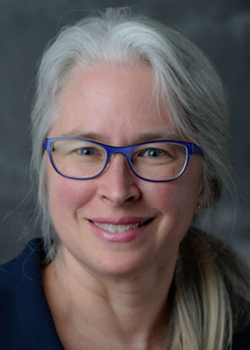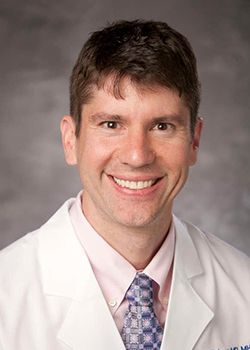
Internal Medicine residents are invited to apply to the R38 Research Pathway program. It's a two-year program for trainees who want to focus on research during residency. “The R38 grant provides support for residents to step away from the clinic and into the lab,” said Maria Price Rapoza, PhD, associate professor of medicine in the Duke Department of Medicine, and R38 Research Pathway Program contact.
The grant allows up to 18 months of protected time for research, 80% will be dedicated lab time but residents will be required to spend one half day in clinic each week. “They will still be going back and forth between the two, but with 80% they can be in the lab enough to feel like they’re connected and working towards publications,” Rapoza said.

The R38 program is approved by the American Board of Internal Medicine (ABIM) and funded by multiple grants, including a recent award from the National Institute of Health’s (NIH), National Institute of Allergy and Infectious Diseases (NIAID) and the National Heart, Lung and Blood Institute (NHILBI).
The Duke Department of Medicine partnered with the Duke Department of Surgery and the Duke Department of Pediatrics to obtain the NIAID award and the NHILBI award for the R38 program. Scott Palmer, MD, vice chair for research in the Department of Medicine, serves as the Department of Medicine principal investigator (PI) for these multi-departmental partnership awards. The partnership allows the program to be flexible in accommodating the number of residents who wish to participate.
While the R38 program does make residency a year longer, trainees appointed to the program receive the same salary as other residents and an additional $20,000 dedicated to travel expenses and lab supplies.

“Residents who complete this program are much farther along on the path to being a physician scientist. If they are interested in having one foot in the clinic and one foot in the lab, this is a great opportunity for them to consider,” Palmer said.
Applicants must have a research mentor who is an established faculty member with a lab, but program leaders can help identify a potential match for interested candidates without one. “This is what makes us an academic medical center, not just teaching the medical students, but also having faculty who are connected to research,” Rapoza said. Selected residents will also meet with a scholarship oversight committee at least twice per year to create a career development plan.
“As an MD you are always thinking about the patient when you’re back at the lab, and I think that gives a unique perspective that’s important,” she continued.
Residents committed to either laboratory-based basic science research or clinical research are encouraged to apply during PGY-2. Interviews will be conducted with Dr. Palmer and other members of the selection committee. Up to two residents in good clinical standing will be admitted to the program at the beginning of the JAR year.
“It’s a great credit to the Department of Medicine that they do support research at the resident and fellow level and the R38 grant is a great tool in the toolkit,” Rapoza said. Trainees interested in this opportunity should contact Maria Price Rapoza for additional information.